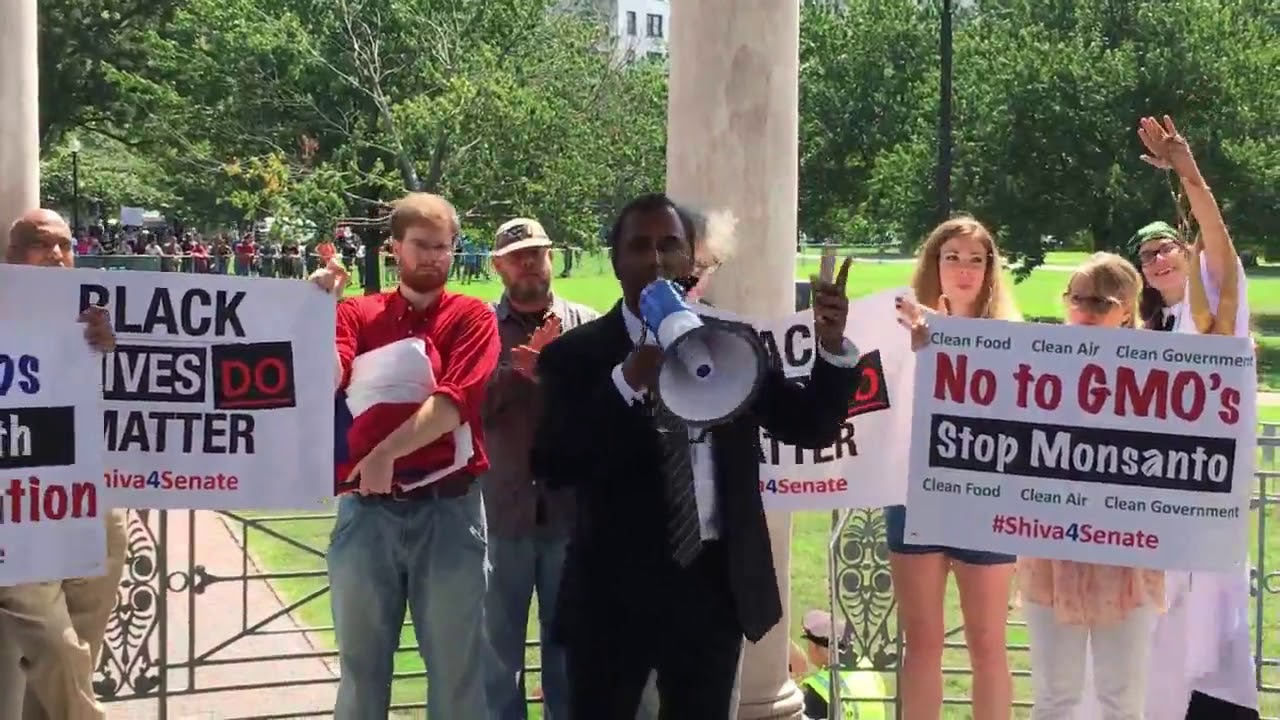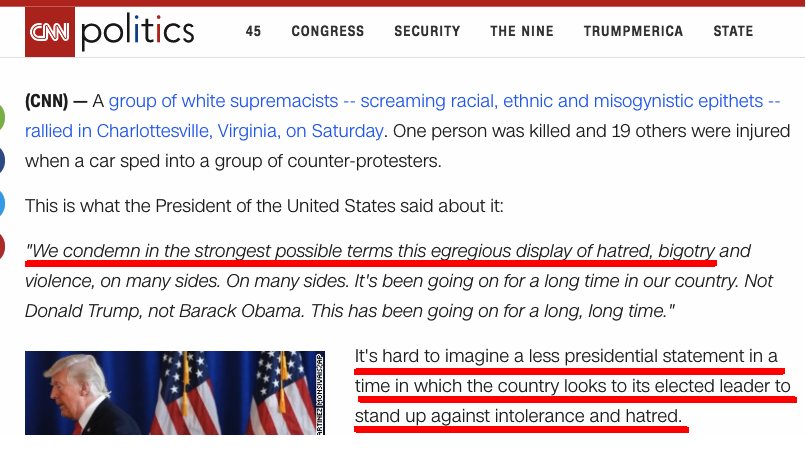Potpourri
==> Carlos and I took a long hiatus but now we’re back in the saddle. No joke, he uncovered some stuff in his research that I think is very interesting regarding the Fed unwinding its balance sheet, and how they may try to get out of the corner into which they’ve painted themselves. We explain in the latest episode of the Lara-Murphy Show.
==> My appearance on the Libertarian Christian Institute’s podcast, talking about an-cap law and defense.
==> I am quoted in this Pro Publica piece on the “social cost of carbon.” (He left out of the best part of my email, alas.)
==> I’m not endorsing the analysis, but Mark Spitznagel criticizes the use of cryptocurrencies as “safe havens.”
==> Roy Spencer argues that Houston flooding isn’t evidence of climate change.
==> This short clip from Jordan Peterson is interesting. It summarizes a lot of his perspective.
“Ask Me Anything”
I agreed to do one of these things. Please clap.
(I’ll be attentive on Tuesday, August 29, from 7pm – 8pm Eastern, and then I’ll check again the next day for any stragglers.)
Potpourri
==> Tom Woods interviews Scott Horton on his new book about Afghanistan.
==> Brittany Hunter on the “sunk cost fallacy” vis-a-vis Afghanistan.
==> Tyler Cowen weighs in on the issue of public shaming. This was interesting:
I see many people who have behaved very badly — and here I mean legally convicted criminals — but where the prevailing “mood affiliation” among American liberal intellectuals is to favor their rehabilitation. For instance, if a company does not ask job applicants if they have criminal records, this is considered to be good, and maybe it is. For one thing, many of those criminals are the products of bad circumstances and we may have various (true) theories that help to excuse their behavior. So we don’t go to the nth degree to shame and disgrace those ex-criminals, even if they have been convicted of prior violent activities.
How are we then to feel about contemporary neo-Nazis? Most of them have not been convicted of anything at all. Yet right now we are going to great lengths to shame and disgrace them. We regard them as on a lower moral rung than the convicted criminals. But is wishing for violence that much worse than having committed it yourself?
Incidentally, I think I have an answer on this specific way Tyler framed it. To wit, presumably a company that hires a convicted criminal *doesn’t think the guy is going to commit another crime on the job*. In contrast, the guys who participated in the recent march and then get fired, presumably didn’t come to work on Monday saying, “Wow that was a dark period in my life, and I’m totally beyond that now.”
Another element is that people who break actual laws are presumably punished by the legal system, whereas it’s not actually a crime to say horrible things. And so, it arguably makes sense that people reserve their capacity for public shaming / boycotting / etc. for such offenses.
So to be clear, not only do I think it is within their *rights* for companies to fire the people who were participating in the tiki march, but I agree with their decision. My concern with all this stuff, though, is that in the zeal to burn the neo-Nazi witches, hysteria has gripped the country and a lot of regular people are getting caught in the crosshairs. Further, the casual talk of “punch a Nazi” is also disturbing, since it is *not* within your rights to punch the tiki marchers.
P.S. I’ll leave the comments open on this one, but I don’t want a war breaking out so please don’t bring up anyone who is currently feuding in our ranks.
Truckin’, Like the Krug-oh Man
Yes that was an awful Grateful Dead reference.
You don’t want to miss this episode of Contra Krugman, in which we talk about the fate of truckers but also mention something SPECIAL. What could it be?!
“Everyone I disagree with is a Na–“
What used to be a punchline (get it?) is now becoming reality. This is an actual story in Salon:
Tom Woods interviewed a guy who was fired because he was scheduled to speak at the Boston “Free Speech” rally. The guy wasn’t speaking on anything controversial. He was actually interested in the event because he supports this Indian American running for Senate:
(Incidentally, I am pretty sure that photo is from the Boston event. It doesn’t exactly look like a KKK gathering.)
But people on social media saw he was an attendee, they believed the “free speech” rally was actually a dog whistle for white supremacy / neo-Nazism, and so they demanded his employer fire the guy. (Incidentally, the Boston rally was planned before the horrible events in Charlottesville occurred. Apparently a major source incorrectly linked the two events, and this is what put the Boston event in the crosshairs of protesters, and then I think the Boston mayor made a big show about “the courts said we can’t keep white supremacists out” and that may have genuinely confused people. It’s also possible that there were genuinely awful people who were originally supposed to speak, but then were disinvited; I am happy to add details if you email me. But I know the guy whom Tom interviewed was going because of concern for free speech, and I know the organizer(s) made clear that they didn’t want any hate groups and no one advocating violence was welcome.) Some of the speakers at the Boston event ultimately had to be escorted away by police for their own safety.
On Twitter, I have recently had to put out fires because someone makes blanket accusations against a group (including me), and then people just assume it’s true. So I can pick off a few people here and there and they realize what happened. (I had one guy call me an anti-Semitic racist nut [actual phrase he used] and then when I asked him what I had said to make him say that, he apologized and said he had written the tweet the night before when he hadn’t had much sleep, and took it down.) But there’s a tradeoff in doing that sort of thing on social media, because it draws attention to it when you jump in and do the equivalent of, “No, on the contrary, I never beat my wife to begin with, I’ll have you know!”
We are now having a debate on free speech per se, e.g. with this college professor claiming free speech has become “weaponized” in the hands of people like Ann Coulter and Milo.
Look, I get that tensions are high, and some people in the libertarian community are resurrecting decades-old battles right now, but can I ask a simple favor? If you find yourself attacking somebody online, and in order to make it “punchier” you actually type out a statement that is false–in the sense of “literally speaking, this is not a true statement”–then start over. If the recipient of your attack is indeed the monster you think, then you don’t have to bend the facts to really make sure people get how bad he is. Constrain yourself to just using literally true statements.
Apropos of all that, here is a moving compilation of Jordan Peterson clips talking about the horrors of Auschwitz and the death of truth in Soviet Russia.
P.S. Again, I don’t want to police the comments on this post, so I’m closing it.
Jordan Peterson
I joined the bandwagon and started listening to Jordan Peterson’s podcast. Note, however, that this has NOTHING to do with his controversial stance regarding pronoun usage. I heard him on Tom Woods’ show when that issue was breaking, and didn’t think anything about his actual work.
Rather, I know some people who were huge fans of his work even before the controversy (and in fact wish that whole thing had never happened). Peterson is fascinating because he is well-read in a variety of disciplines and links them in unusual ways. I have never heard anybody like this guy. He mixes psychology, philosophy, Darwinism, and a profound appreciation for Biblical narratives in a way that blew me away when I first heard it.
I’m by no means an expert, but as of now I’ve listened to the first 3.5 episodes of his podcast. Just give Episodes 1 and 2 a chance. If you aren’t hooked, then thank you for your time.
Here are some notes I jotted down from Episode 3, “The Necessity of Virtue.” The time stamps are not (necessarily) exact; they just indicate the minute in which the discussion occurs.
17.50 — Humans have remarkably good vision (second to birds of prey). One researcher has a compelling theory that it developed in order to avoid snakes. Thus, the serpent gave us the ability to see.
21:00 — People who are bored and think life is meaningless also think they are ineffective. But actually you are a loaded weapon. You are capable of great evil. But if you realize that, you can also become a force for good.
26:00 — People embrace meaninglessness because there is no responsibility. Who cares what you do, if it’s all pointless? But if there is profound meaning in every action, then you must be very deliberate in each choice you make.
29:00 — The people who participated in horrific “utopian” projects of the 20th century just used the utopian vision as their cover story. Really they wanted to do horrific things to others.
43:00 — If you’re not honest, you can’t trust your own intuition. If you lie to yourself, you corrupt the structure you use to interact with being; it will then mislead you.
Helping People to Understand Why Some Are Talking About a “Bubble” or “Hypnosis”
We all know at some level that people suffer from confirmation bias, that they see what they want to see, etc. But lately this phenomenon has gotten so extreme, it’s amazing to behold.
Look at this screenshot from a recent CNN article, talking about Trump’s initial reaction to the tragic events in Charlottesville:
I’m not even asking whether you agree with the CNN writer’s position. All I’m asking is: Can you understand how millions of Americans–say, the people who voted for Trump–would look at the lines I put in red underline, and think they were taking crazy pills?
Now if you click the article, you can see that the writer’s problem was the “many sides” stuff. And yet, that statement is obviously correct, as this new CNN (!) story on antifa clearly proves.
On Facebook I’ve heard people say, “Well, the problem is that Trump said antifa was just as violent and bad as the history of white supremacists.” I don’t think I heard Trump ever say that, but I’m open to it. Can someone provide a link in the comments?
Last one: I’ve seen memes showing D-Day and comparing that to Trump’s remarks. Well, OK, but if the German troops had first gotten a permit (not under duress) from the French government to march into their cities, then it would be more analogous.
I would offer my normal disclaimer about not liking Trump etc., but I think that’s superfluous at this point, given the screenshot above. You are either going to read what I wrote, or you are going to see through to what I “really mean” by my words.
Contra Krugman Twin Spin
I wish I weren’t bogged down with so much stuff, because Episodes 99 and 100 of Contra Krugman are special.
In #99, we take on Krugman regarding business cycle theory. I joked on Facebook that this is probably what you thought every episode of Contra Krugman would be like.
In #100, we have a special guest… Who will it be?










Recent Comments